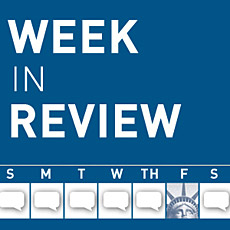
To whom did the ACLU write to ask that they stop tracking cell phone users and storing their data?
Which police department is refusing to hand over public information on its use of force against Occupy protesters?
In which state are parents concerned that their kids are being racially profiled in school because of an anti-immigrant law?
How many prisoners are held in the torturous conditions of solitary confinement in the U.S.?
In how many states did politicians introduce barriers to voting this year?
ACLU to Wireless Carriers: Stop Tracking Americans' Movements
The ACLU today wrote to the CEOs of the nation’s major cell phone providers asking that they stop routinely collecting and storing data on their customers’ daily movements. We’re also urging Americans to make this same demand, and we’ve created a page making it easy to do so.
ACLU to Oakland Police: No Seriously, Hand Over the Info
The Oakland Police Department oversaw the use of excessive force against Occupy Oakland demonstrators, and now the department is refusing to hand over information about what really happened.
Singled Out in Alabama Schools
The Department of Justice (DOJ), following up on reports that students were being bullied in the classroom and that parents were keeping their children out of school because of Alabama’s anti-immigrant law, asked 39 superintendents for information on student absences and withdrawals since the start of the academic year. To this, Alabama Attorney General Luther Strange said no, challenging DOJ’s legal authority to investigate.
In a video released today, Cineo Gonzalez, a Birmingham taxi driver, recounts how — in front of the entire class — his daughter, along with one other Latino student, received a Spanish-language pamphlet explaining the law. When Gonzalez asked why the teacher gave the document to his daughter, the principal told him that they only gave the document to children who looked like weren’t from the United States.
Solitary Confinement Destroys All Kinds of People
This week, Sarah Shourd shared the horrors of spending 14 months in an Iranian prison, almost all of which was spent in solitary confinement. She described how after just two months in solitary her “mind began to slip," she experienced hallucinations, she frequently cried herself into exhaustion and found herself beating the walls of her cell until her knuckles bled.
Tragically, the suffering Ms. Shourd experienced in solitary in Iran is not unique to foreign dictatorships but is a commonplace experience for tens of thousands of prisoners right here in the United States, where at least 25,000 people are held in solitary on any given day. Across the U.S., prisoners in solitary are locked alone in a cell for at least 23 hours a day, day in and day out, often with no natural light and with no meaningful human contact.
So You Think You Can Vote?
Election Day should be a time to reflect on our country’s hard won history of expanding access to the polls. But on this Election Day, we are faced with a dramatic rollback of that access — a sweeping trend of voter suppression laws that have been introduced and enacted by state legislatures across the nation. During the 2011 legislative season alone, regressive measures were introduced in more than 30 states, and 14 states advanced measures that would create more barriers to voting.
This is your week in civil liberties. Let us know if this is useful or if you'd like to see changes. Share your thoughts: mailto: ideas@aclu.org.
Learn more about your rights: Sign up for breaking news alerts, follow us on Twitter, and like us on Facebook.

